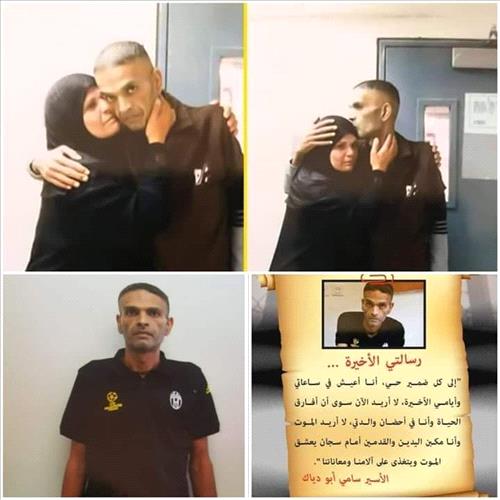Tension was high throughout the Israeli prisons this morning following the announcement that Palestinian prisoner, Sami Abu Diak, who was suffering from cancer, has died, according to the Palestinian Authority’s Prisoners Affairs Commission.
The Palestinian News and Info Agency (WAFA) reported that the death of Abu Diak, 37, from Silat al-Dahr village in the northern West Bank district of Jenin, this morning in the Israeli hospital Asaf Harofeh, was the result of what the Commission called “the policy of deliberate and systematic clinical killings by the (Israel) Prison Services.”
In a statement, the Commission said that following the announcement of the death of Abu Diak, there was anger and condemnation in the various prisons. Prisoners banged on the doors and called out the name of God as the prison services administration rushed to declare a state of alert and shut down all sections.
With the death of Abu Diak, the number of Palestinian prisoners who died as a result of medical negligence has reached 222 since 1967, more than a third of them while in custody.
Abu Diak was detained on 17 July 2002 and was sentenced to triple life terms plus 30 years, of which he spent 17 years behind bars before his death.
He was unable to walk and would move only on a wheelchair. He underwent four operations to remove tumors from the intestine, and during one of the operations, he went into a coma for one month.
Many petitions were submitted for the early release of Abu Diak in light of the serious and critical deterioration of his health, but the occupation authorities rejected all appeals, said the Commission.
The Prisoners’ Commission held the occupation authorities fully responsible for the death of Abu Diak due to what it called racist crimes against Palestinians, such as physical and psychological torture, medical negligence of prisoners and other violations and procedures of torture against them.
The Commission called for investigations into cases of violations against prisoners and to force Israel to abide by international law regarding prisoners.
Photo credit: WAFA
Edited for IMEMC: Ali Salam

